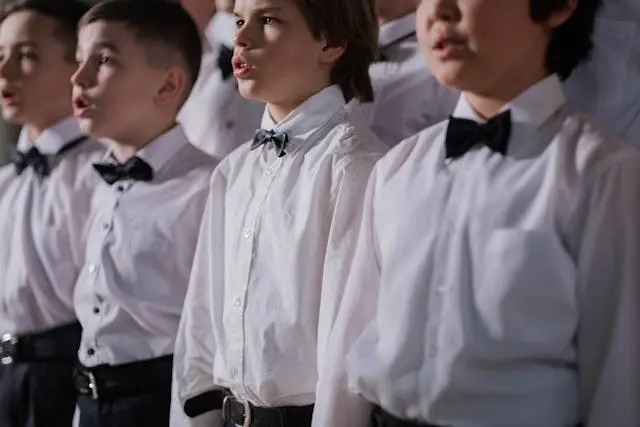Public speaking can feel terrifying—even the most confident students sometimes freeze when standing before a crowd. Whether it’s a classroom presentation, a storytelling competition, or a school event, the fear of messing up can be overwhelming. If you or your child is struggling with this, you’re not alone. The good news? You can learn how to overcome stage fright with a few simple and effective strategies. In this article, we’ll explore practical tips to help students speak confidently, reduce anxiety, and enjoy performing in front of others.
Understanding Stage Fright and Why It Happens
Before learning how to overcome stage fright, it’s important to understand what it is. Stage fright, also called performance anxiety, is the nervousness or fear someone feels before or during a public performance. For students, this might show up as:
- Sweaty hands
- Dry mouth
- Fast heartbeat
- Shaky voice
- Forgetting what to say
This fear is completely natural. Our brains often see public speaking as a threat—even though it isn’t. The body’s “fight or flight” response kicks in, making us feel nervous or afraid. However, by practicing and using the right techniques, students can train their minds and bodies to stay calm and focused.
How to Overcome Stage Fright with Preparation and Practice
One of the most powerful ways to beat stage fright is preparation. When students feel ready, their confidence naturally grows. Here are some tips that make a big difference:
1. Know Your Material
Understand the topic inside and out. Whether it’s a speech, poem, or story, knowing what you’re saying helps reduce the fear of forgetting.
2. Practice in Front of Family
Start small. Practice in front of parents, siblings, or friends. The more you speak in front of people, the more comfortable it becomes.
3. Use a Mirror
Practicing in front of a mirror helps students see their expressions, posture, and gestures—making them more aware and confident.
4. Record and Review
Record the practice session and play it back. This allows students to improve their tone, pace, and body language.
5. Break It Into Parts
Instead of memorizing a whole speech, break it into smaller chunks. Learn one part at a time—it’s less stressful and more effective.
How to Overcome Stage Fright with Mindset Shifts and Breathing Techniques
Even with preparation, nerves can still sneak in. That’s where mental strategies and breathing techniques come into play. Here’s how:
1. Positive Self-Talk
Teach your child to replace negative thoughts with positive ones. Instead of “I’ll mess up,” think, “I’m prepared, and I can do this.” Confidence begins in the mind.
2. Visualize Success
Encourage students to close their eyes and imagine themselves giving a great performance. Visualization tricks the brain into feeling calm and successful.
3. Breathing Exercises
Slow, deep breathing calms the body. Try the 4-7-8 method: inhale for 4 seconds, hold for 7, and exhale for 8. This reduces anxiety quickly.
4. Power Poses
Standing tall with open arms or a wide stance for two minutes can actually boost confidence. It’s a simple trick backed by science.
5. Accept the Nerves
Remind your child that feeling a little nervous is okay—it shows they care. Even famous speakers feel it sometimes. The key is not to let fear control the performance.
Small Steps Lead to Big Confidence
At EduJunior, we believe every child has the potential to shine—whether in academics, competitions, or life. Overcoming stage fright is not about becoming perfect; it’s about learning, growing, and building confidence step by step.
Encourage participation in school events, storytelling competitions, and elocution contests. Every time a student gets on stage, they become stronger and more self-assured.
With consistent support and practice, students will soon find themselves looking forward to the spotlight rather than fearing it.
Final Thoughts
Learning how to overcome stage fright is a journey that takes time, patience, and encouragement. With a little preparation, a positive mindset, and some simple techniques, students can speak clearly, confidently, and with joy. Remember: the goal isn’t to eliminate fear but to rise above it.
At EduJunior, we support holistic learning through creativity, public speaking, and performance-based learning. Because when children believe in themselves, they’re unstoppable.

